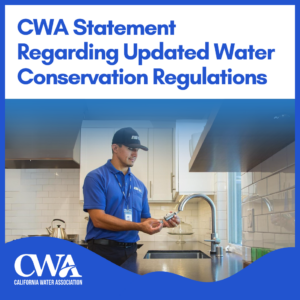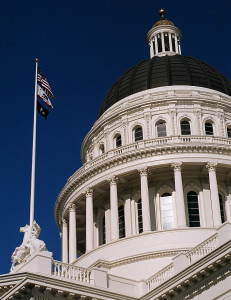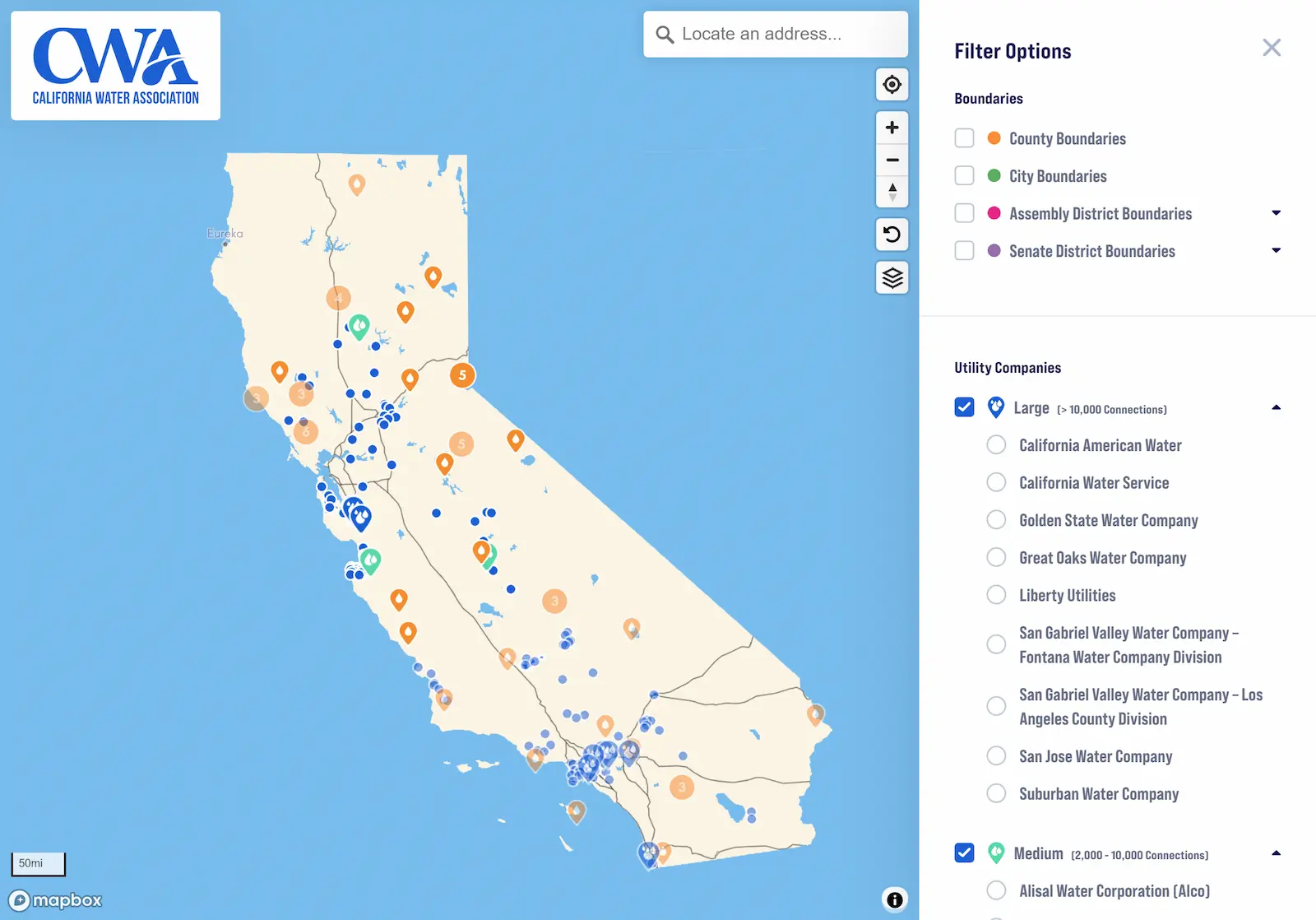The 2013 legislative session in Sacramento ended on Friday, September 13, and despite the symbolism of the adjournment date, the impact of the session on the public water supply community in California was relatively benign. Among the most prominent bills passing that affected the water industry was SB 4 (Pavley), which was signed by Governor Jerry Brown and became California’s first bill to codify regulations for hydraulic fracturing, or “fracking,” and environmental protections for other forms of oil and gas well stimulation.
Legislators will return to their districts for the next few months and reconvene in Sacramento on January 6, 2014. Among the bills on which the California Water Association (CWA) was active were a series of water-related bills summarized below. Unless otherwise noted, Governor Brown signed them into law on October 8, 2013.
AB 21 (Alejo) – This bill creates an annual fee on Safe Drinking Water Small Community grantees, which is re-deposited in the grant fund for specific water projects in severely disadvantaged communities. CWA supported the bill throughout the legislative session.
AB 115 (Perea) – This bill, also supported by CWA, authorizes the Department of Public Health (DPH) to fund projects by grant, loan or a combination of the two, where multiple water systems apply for funding as a single applicant for the purpose of consolidating water systems or extending services to households relying on private wells. The bill’s purpose is to extend applicant eligibility to larger water suppliers with the expertise to assist disadvantaged communities that have contaminated drinking water sources.
AB 118 (Committee on Environmental Safety and Toxic Materials) – Another bill supported by CWA, AB 118 authorizes the DPH to adopt interim regulations to implement new changes to the State Revolving Fund law and to meet the requirements of the Federal Safe Drinking Water Act. The bill effectively requires the DPH to provide grants, instead of loans, to certain small water systems. AB 145 (Perea) – This bill, which was held in the Senate Appropriations Committee, would have transferred the state’s drinking water program under the California Safe Drinking Water Act, including the Safe Drinking Water State Revolving Fund, from the DPH to the State Water Resources Control Board. A version of this bill will be taken up by the Governor’s office during the Legislature’s fall recess under a plan to include the transfer in the 2014 budget legislation. CWA is participating on the Drinking Water Program Reorganization Task Force, which will work throughout the fall on the legislative language that will be introduced in January.
AB 240 (Rendon) – This bill, which CWA monitored during the session, declares the intent of the Legislature to encourage collaboration among mutual water companies that operate public water systems in the City of Maywood to create a public agency that can consolidate drinking water services for the people and businesses of that city.
AB 803 (Gomez) – AB 803, supported by CWA, removes barriers to the increased use of recycled water. It ensures protection of public health and safety by putting definitions and procedures into statute that change Title 17 and Title 22 of the DPH’s California Code of Regulations regarding recycled water. SB 14 (Gaines) – This bill allows recreational activities at Bear Lake Reservoir, which is the sole source of water for Lake Alpine Water Company, a CWA member that is one of the water suppliers in the Bear Lake area. It was signed by the Governor on August 27.
SB 96 (Committee on Budget and Fiscal Review) – Another bill that CWA monitored closely, SB 96 is the 2012-13 budget trailer bill for resources, environmental protection, energy and agriculture. It creates the Office of Ratepayer Advocates as a separate budgetary program at the California Public Utilities Commission with separate budget and positions. The bill was signed by the Governor on September 26.
SB 429 (Hernandez) – This bill, supported by CWA, extends the sunset date of the San Gabriel Basin Water Quality Authority from July 1, 2017, to July 1, 2030. It was signed by the Governor on September 6.
The end of the legislative session saw no action on the water bond. On September 24, the Senate Natural Resources and Water Committee and the Senate Environmental Quality Committee held a joint hearing titled, “Setting the Stage for a 2014 Water Bond: Where Are We and Where Do We Need to Go?” As currently drafted, the Assembly’s $6.5 billion bond proposal (AB 1331) includes:
- $1.5 billion in funding for clean and safe drinking water (including groundwater cleanup,
- wastewater treatment facilities and stormwater management);
- $1.5 billion for river, lakes, streams and watershed protection (regional and state);
- $1 billion for climate change preparedness and regional self-reliance (including Integrated
- Regional Water Management Plan projects, desalination and recycling);
- $1 billion for Delta sustainability and ecosystem restoration; and
- $1.5 billion for surface and groundwater storage to offset the potential effects of climate change.
The Senate version of the water bond, SB 42 (Wolk), is generally consistent with the Assembly bond framework, although the amounts differ (the Wolk bond would be $6.475 billion with an additional $500 million for safe drinking water projects, plus $975 million for flood protection, with lesser amounts for storage and watershed protection). AB 1331 precludes investor-owned water company (IOWC) eligibility from the bond proceeds, while SB 42 contains inconsistent language on IOWC eligibility.
CWA Executive Director Jack Hawks testified at the hearing on the fallacies in both bills with respect to IOWC eligibility, noting that IOWC customers pay the same taxes that the state will use to pay back the bond proceeds, and that they, clearly, should be able to receive the benefits of any grants or loans emanating from the water bond. CWA will be working with the relevant legislators during the recess to restore the applicable and appropriate language, which has been in the water bond legislation since 2009.
“The Assembly Speaker and a number of state legislators made media statements regarding 2014 as the year of water reform in California,” said CWA Legislative Advocate Meg Catzen-Brown, Senior Policy Advisor for Nossaman LLP. “With the water bond and the potential transfer of the Drinking Water Program to the State Water Resources Control Board in play, it promises to be a lively year.”





